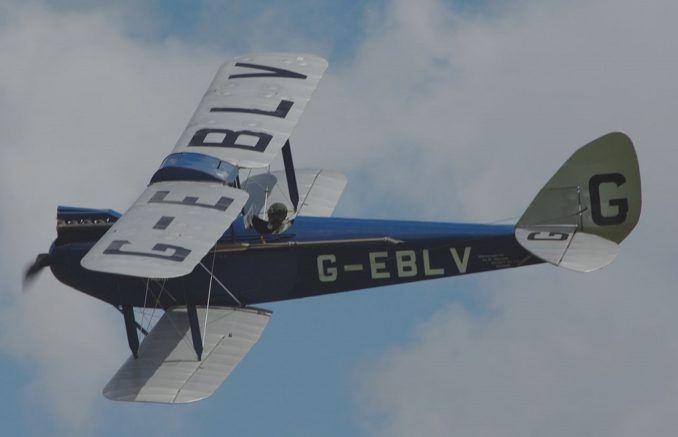Early 1930: It had been a depressing English winter – cold, dark and wet for weeks on end. In West Wickham, a young man who had left Australia five years earlier and settled here in the hope of marketing a compound he’d invented to make tyres puncture-proof, was feeling homesick.
That young man was Eric Hook, 27 years-old, living in a newly-built semi in a quiet road off West Wickham High Street with his wife Dorothy – an Anglo-American from Barbados who’d run away from school at the age of 16 to marry him – and their two small daughters, aged four and 2½. Patrick Hellicar told his story at January’s Local History Group.
Having quit a promising career with an Australian insurance company, Eric made a lot of money trading in fur and skins before sailing in June 1924 from Adelaide and landing in England in August, shortly before his 22nd birthday. By October that year he was married. Come 1930, though happy with his family and business, those dreary winter days were discouraging.
Then he saw a film about a disgraced First World War pilot who redeemed himself in heroic action, and Eric left the cinema fired with an ambition – to fly from England to Australia and beat the Aussie pilot Bert Hinkler’s record of 15½ days. A real fortune could be made from a successful flight, he reckoned.
Eric arranged flying lessons at Croydon Airport, found another young man willing to share the Australia adventure and bought a Gipsy Moth 60M two-seater open-cockpit bi-plane for the flight. But Eric’s proposed companion backed out so he asked Jack Matthews, a former mechanic to the record-holding Bert Hinkler, to join him. Hook and Matthews then both qualified as pilots at the end of May 1930.

Cirrus Moth by TSRL / CC BY-SA 3.0
Disregarding warnings from Air Ministry officials that their plan was “suicidal”, they took off from Lympne airport in Kent on 20 June and headed for France. However, a leaking fuel tank forced them to put down for repairs before they reached Lyon. It was the first of many mishaps, setbacks and hold-ups.
Anxious to get back on schedule, they raced over the Mediterranean in two hops to Benghazi, then on to Cairo, Busheir in Persia (Iran) and Karachi. Once, Arab villagers unleashed rifle-fire as they flew over; desert sandstorms engulfed them; getting petrol was difficult; at various stops they faced visa problems, threats of arrest and were locked up in quarantine.
A monsoon cyclone hit them hard and, later, strong winds, engine trouble and cracks in the fuel tank grounded them at Allahabad for two days before they could reach Calcutta and tackle the fearsome 650-mile stretch to Rangoon in Burma (Myanmar) via Akyab.
Leaving Akyab on 3 July, Day 14 of their quest, they chose the shorter but more-dangerous route over the mountains to Rangoon rather than follow the coast. Within an hour they were trapped in a valley with monsoon storms all around. The Moth was swamped and, engine waterlogged, it crashed into a dense forest of bamboo trees. Jack was unhurt but Eric was injured.
They took maps and the plane’s compass and set out to find Burma’s great Irrawaddy River which they knew would lead them to civilisation. With Jack supporting Eric, they stumbled through the jungle in torrential rain and met the raging river. On the sixth day, Eric, unable to go on, urged Jack to leave him. Jack struggled on alone for two more days until he came across two native bamboo cutters, who helped him to their village. Eventually, they took him to another village where a storekeeper spoke some English and a search party rushed away to seek Eric, without success.
Back in West Wickham, Dorothy Hook refused to believe her husband might be dead. Jack, meanwhile, reached Prome and told his story. Further searches were made for Eric and on 30 July his body, a mere skeleton mauled by wild animals, was discovered. Next day, he was given a hero’s funeral at Prome with full military honours. Jack arrived home at Southampton in mid-September, his passage paid for by a newspaper.
Eric had sunk every penny he had into the Australia adventure and as word of the plight of Dorothy and the children spread in West Wickham the Rev Charles Barry at Emmanuel Church launched the Airman Hook Memorial Fund, which raised £1,700 – over £500,000 in today’s money.
Among the hundreds of letters of condolence Dorothy received was one from a 56-year-old retired dentist from Hertfordshire whose wife had died the day Eric was reported missing. They met, he proposed and they married that November.
By 1947 the marriage had ended and Dorothy, then living in the Lake District, set up a company to market Eric’s puncture-proofing compound. She died in 1977.
In Memoriam notices to Eric Hook appeared in a Sydney newspaper every July for several years. But in West Wickham the memory of this brave – perhaps foolhardy – young man and his Australian exploit seems to have soon faded.
Reproduced with kind permission of the author Patrick Hellicar. First published in Chelsfield Village Voice, March 2020.
Audrey’s daughter 2020
The Goodnight Vienna Audio file
Audio Player


